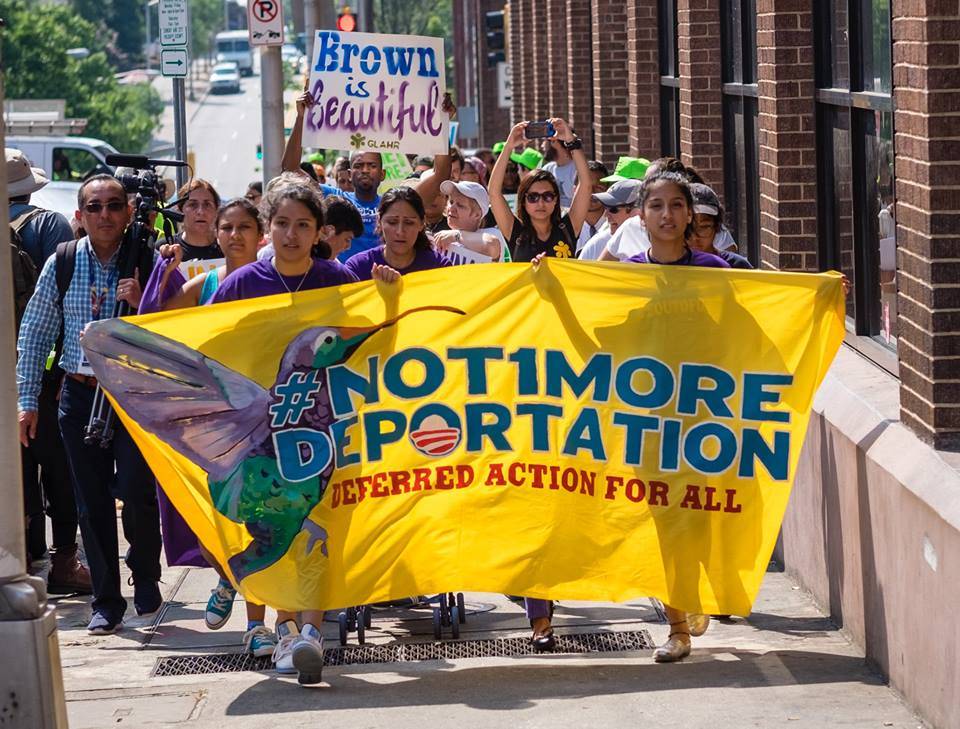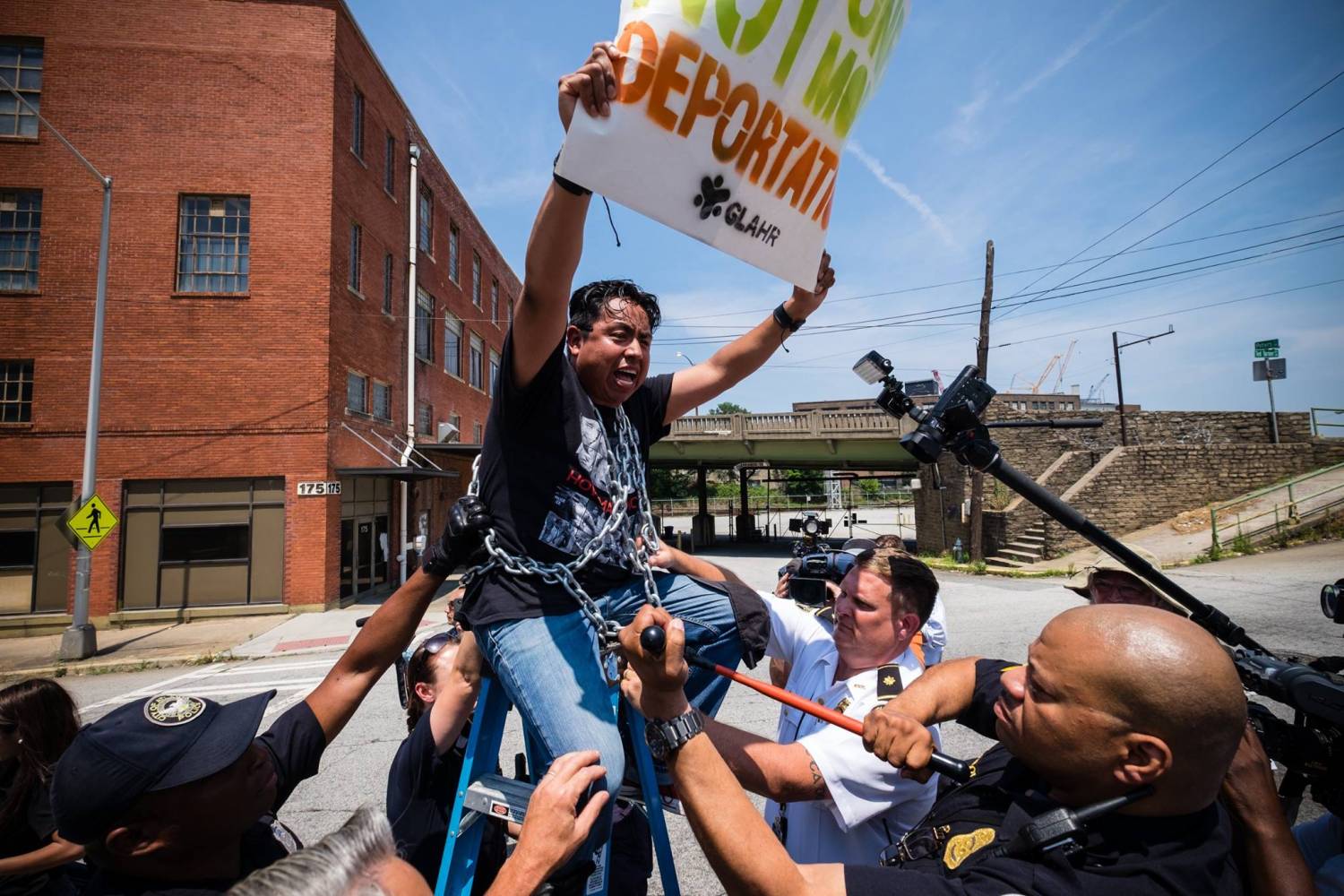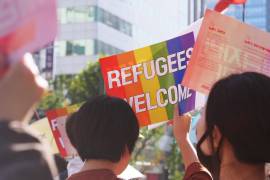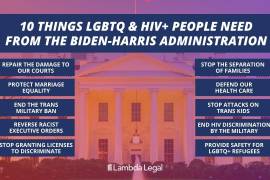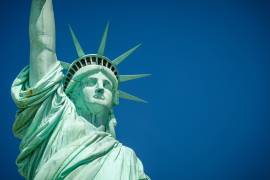This post was authored by Lambda Legal Dream Summer Intern Ashley Rivas-Triana. The Dream Summer is a national fellowship and professional development program for immigrant student activists. Lambda Legal has hosted several Dream Summer Interns as part of its commitment to dignity and justice for all LGBT immigrants in the United States, and fight for humane immigration reform that is inclusive of LGBT people.
In the summer of 2012, I was 17 years old and had just graduated from high school. My friends spent their last months of high school submitting college applications and receiving acceptance letters, and would soon be moving out of their family homes and into their freshman dorm rooms. It was all incredibly exciting.
But I could not share the same happiness and excitement. I had worked so hard for four years and was proud of my high SAT score, my good GPA, and the fact that I was graduating with honors.
However, I was also (as I still am) undocumented. In Georgia, that means that I am banned from attending the state’s top five public colleges and universities and am required to pay out-of-state tuition everywhere else. Undocumented students are also ineligible for federal financial aid.
For me, as for many, this made higher education impossible.
I couldn’t get a job either, as I had no documents that would allow me to work legally. I had no ID, no driver’s license and no passport. Nothing.
To top things off, after a process of over ten years and several thousands of dollars spent on lawyers and fees, my family was informed, without an explanation, that our petition for residency had been denied and were awaiting to be placed in removal proceedings that would result in deportation. Those were some of the most difficult, stressful and uncertain months of my life.
The biggest surprise came later that summer.
In June of that year, President Obama issued an executive action introducing Deferred Action for Childhood Arrivals (DACA), a policy that provides qualifying young immigrants temporary protection from deportation and work permits for two years. This allowed me to stay in the United States, rather than be deported to a country I had not been to since I was two years old.
No one ever followed up on our removal process, so my parents were also allowed to stay, but since they did not qualify for DACA, they were not given the same benefits and still live in fear every day.
I was not alone in feeling the benefits of this new program. In the first two years, U.S. Citizenship and Immigration Services (USCIS) approved around 610,000 DACA applicants, 10% of whom identify as LGBTQ.
The program allowed many people, myself included, to receive a driver’s license or another legal form of identification for the first time. Having a valid ID is extremely important for undocumented LGBTQ immigrants who may experience profiling by the police and who fear that any contact with local law enforcement could result in detention or deportation, especially without a valid ID.
In fact, 73% of LGBTQ people and people living with HIV report having had face-to-face interaction with law enforcement within the past five years.


